
In Sparkling Science projects, scientists work with pupils on current research questions. In many of these citizen science projects, further citizens are also involved, e.g. families, people with disabilities or medical professionals. Over the course of about three years, the participants work together in different phases of the project, e.g. creating questionnaires or collecting and analysing data.
This page presents an overview of general news and project news from the series "Inside Sparkling Science 2.0".
Webinars "Spotlights"
Starting in September, two funded Sparkling Science projects will present themselves monthly - always at noon on the second Thursday of the month - in a one-hour online session and talk about their experiences, lessons learned etc.
How do Spotlights work?
In two short inputs of 15 minutes each, they talk in the first part about their scientific goals, their project partners, the planned output as well as the collaboration with students and possibly other citizen scientists. In the second part, they provide insights into a specific topic or question. Afterwards, 30 minutes are available for questions and discussion.
Event language: German
1st Spotlight: Collaboration with partner schools in citizen science: plan vs. reality
The two Sparkling Science projects CO2 Conversion. From harmful exhaust gas to a resource - CO2 as a valuable raw material and Aquirufa: Biodiversity and ecology of freshwater bacteria shared their experiences with the participants on September 14, 2023 and talked about the cooperation with the participating schools. Among other things, they told about successes and challenges they encountered and adaptations they made in the course of the project.
2nd Spotlight: Communication in Citizen Science projects?
In the webinar on October 12, 2023, project leaders and staff from various disciplines shared their experiences. On the one hand, Nora Dirisamer, Julia Lauss and Christoph Helm (Johannes Kepler University Linz) shed light on the topic against the background of their Sparkling Science project "Circus of Knowledge. Citizen Science meets Citizen Art". On the other hand, Franziska Dengler (Vetmeduni Vienna) reported on her experiences from the project "Colic & Butyrate. Panacea Butyrate? Evaluation of production, effect and therapeutic potential in the equine colon".
3rd Spotlight: Training Citizen Scientists - How do Citizen Scientists learn to work scientifically?
How do citizen scientists learn to work scientifically? This question was explored in the third "Inside Sparkling Science 2.0 Spotlight" on November 9, 2023 from 12:00 to 13:00.
Two projects shared their experiences on the topic of "Training Citizen Scientists". Friederike Barkmann (University of Innsbruck) from the Sparkling Science project Green Roof Habitats and Fabian Pettig (University of Graz) from EAT+CHANGE presented their projects and lessons learned in the webinar. The active involvement of students, teachers and other citizen scientists raises exciting questions about methods, formats and materials with regard to the transfer of knowledge about scientific work.
4th Spotlight: What to do when tensions arise in a citizen science project?
Different people work closely together in citizen science projects - project staff meet teachers, pupils and other citizen scientists. Despite good planning, differences of opinion can arise. How can disagreements in the project be resolved effectively? What resources can you fall back on?
In the 4th Spotlight of the webinar series on December 14, 2023, 12:00-13:00, two project leaders share their experiences. Elena Ritschard (EDUCULT) reports from the project Colonialism today! What does that have to do with me? Hans Karl Peterlini (University of Klagenfurt) presents lessons learned from the Transform4School project.
5th Spotlight: Motivation and recognition in Citizen Science
The ongoing motivation of Citizen Scientists is an important factor for the success of a project. How are the achievements of citizen scientists recognised? What incentives work for teachers, students and other project participants to keep the motivation to participate in research high?
These and other questions were discussed in the 5th Spotlight of the webinar series ‘Inside Sparkling Science 2.0’ on 11 January 2024. The current Sparkling Science projects VisibLL, represented by Barbara Soukup (University of Vienna), and WILDLIFE CRIME, represented by Silke Schweiger (Natural History Museum Vienna), presented themselves.
6th Spotlight with the projects "Be PART of it!" and "u3Green"
On 14 March 2024, two Sparkling Science projects presented their research and lessons learned. Charlotte Doll (Medical University of Vienna) from the Sparkling Science project ‘Be PART of it!’ and Robert Vogler (University of Salzburg) from ‘u3Green’ gave an insight into their research content and their collaboration with pupils as citizen scientists. Both projects deal with the living environments of children and young people - on the one hand in the context of the classroom and on the other in the immediate urban environment
.
7th Spotlight with the projects "MAJA" and "Snow2School"
On 11 April 2024, Clemens Fuchs (University of Salzburg) from the Sparkling Science project ‘MAJA’ and Wolfgang Schöner (University of Graz) from ‘Snow2School’ gave an insight into their research content and their collaboration with pupils as citizen scientists. They talked about mathematical algorithms, snow observations in Greenland and Austria and the lessons learnt from the projects.
8th Spotlight with the projects "LIDAL" and "DIGIdat"
Ursula Gärtner and Sally Baumann (University of Graz) from the Sparkling Science project ‘LIDAL - Latin Inscriptions for Digital and Extracurricular Learning’ and Sebastian Goreth (University of Teacher Education Tyrol) from ‘DIGIdat - Digital Data Analysis for Indoor Air Quality meets Education for Sustainable Development’ gave an insight into their research content and collaboration with pupils as Citizen Scientists on 8 May 2024.
9. Spotlight mit "This is (not) Rocket Science!" und "FEIN-FÜHLEN durch Mentalisieren"
Doris Erhard und Sarah Rosenbichler (Technisches Museum Wien) vom Sparkling-Science-Projekt „This is (not) Rocket Science“ und Antonia Dinzinger (Paracelsus Medizinische Privatuniversität) von „Reflecting Minds - FEIN-FÜHLEN durch Mentalisieren" gaben am 13. Juni 2024 einen Einblick in ihre Projekte. Beide Teams pflegen einen engen Austausch mit den mitforschenden Schülerinnen und Schülern und stellten ihre Arbeitsweise vor.
10. Spotlight mit den Projekten „Recycling Heroes“ und „Sparkling Matrix"
Georg Jäggle (Technische Universität Wien) vom Sparkling-Science-Projekt „Recycling Heroes“ und Renate Gehwolf und Andrea Wagner (Paracelsus Medizinische Privatuniversität) von „SparCling Matrix" gaben am 12. September 2024 einen Einblick in ihre Forschungsinhalte und in die Zusammenarbeit mit Schüler/innen als Citizen Scientists. Aus ihrer Arbeit der letzten Jahre gaben sie neuen Citizen-Science-Projekten Tipps für eine gute Zusammenarbeit.
Upcoming Spotlights
- 14 November 2024 - Sparkling-Science-Spotlight with the projects "FFF-Gletscherwelten" and "Biodiversität der Elritzen"
- 12 December 2024, 12:00-13:00, 13th Sparkling Science Spotlight with the projects "PLASTIC.ALPS" and "TRA:WELL"
- 16 January 2025, 12:00-13:00, 14th Sparkling Science Spotlight with the projects "Relevance of mathematics teaching" and "Exploring and transforming multilingual spaces"
Interviews
To learn more about the projects, "Inside Sparkling Science 2.0" offers regular insights into the project activities and the cooperation of the different citizen science participants.
Learning about microbes is easier with science communication
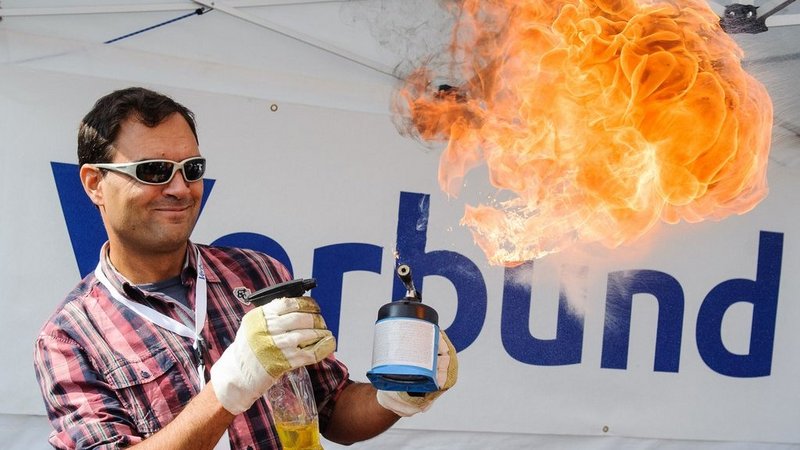
In this video interview, science communicator Bernhard Weingartner (Vienna University of Technology) reports on how students in the Sparkling Science projectMicro-Tramper communicate science, gives tips for successful science communication and tells how to counter skeptics.
Read more
Microbes in food production - teenagers sample cheese and kitchens
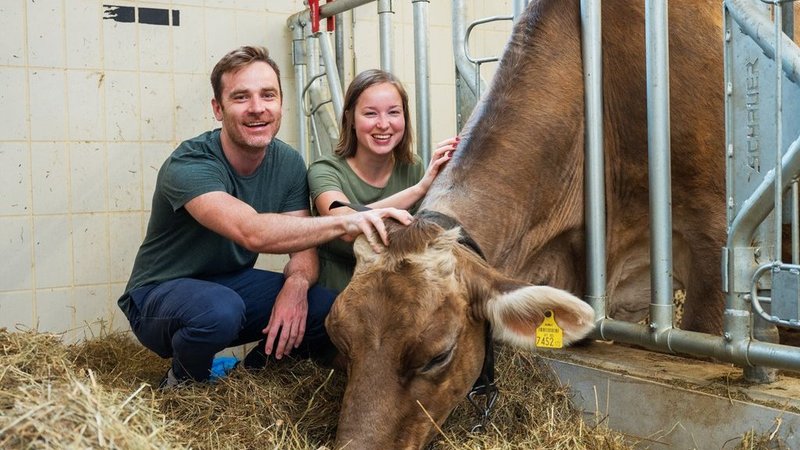
In the video interview, the project manager of the Sparkling Science project "Micro-Tramper" talks about why she and her team decided on the citizen science approach and what her best moment so far has been with the young people in the project. She also discusses, among other things, what remains at the schools after the project ends. In addition, one of the students herself has her say and talks about her own impressions.
Read more
Elementary school children do research on regional raw materials for a sustainable future
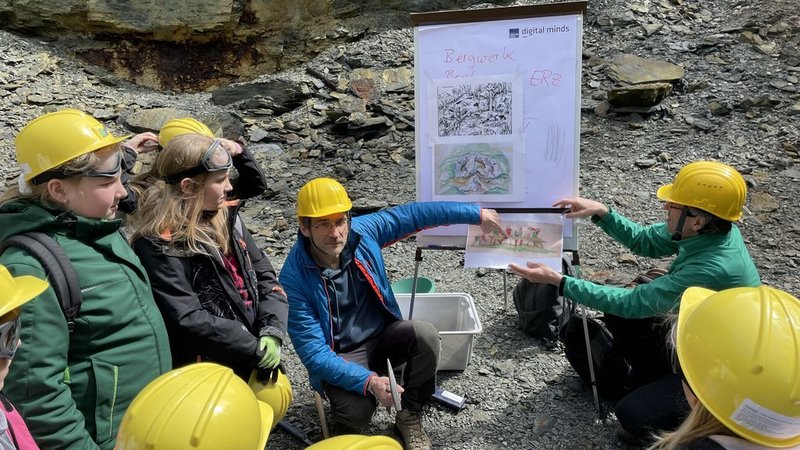
In the citizen science project One day there will be… researchers work with elementary school children on the topic of sustainable use of raw materials. Prof. Robert Kamper (PH NÖ) explains in a video interview why pupils can participate at such a young age, what advantages this brings and what they are dealing with.
Read more
Class councils and student parliaments for more democratic learning in schools
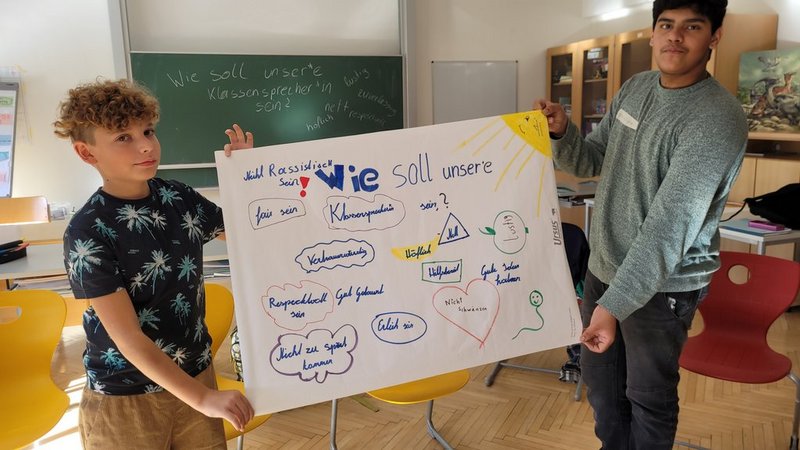
In the interview, the project leader Hans Karl Peterlini (University of Klagenfurt) talks about the motivation behind his project Transform4School, what democracy learning can achieve and how the students participate.
Visually impaired students collaborate on technical innovations for physical education classes
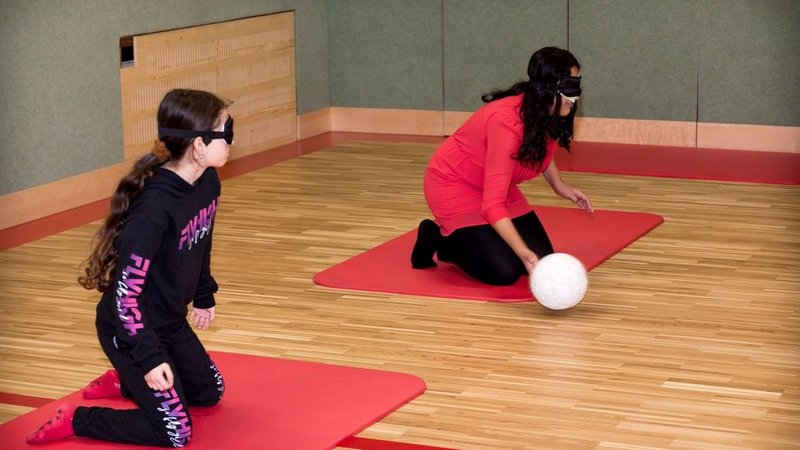
In the video interview, Arnold Baca (University of Vienna) answers a series of questions about his Smart Sport Assistance project, which involves the development of assistance systems. These are intended to make it easier for visually impaired students to participate in sports lessons.
Garbage everywhere you look! Tracking down environmental pollution with citizen science
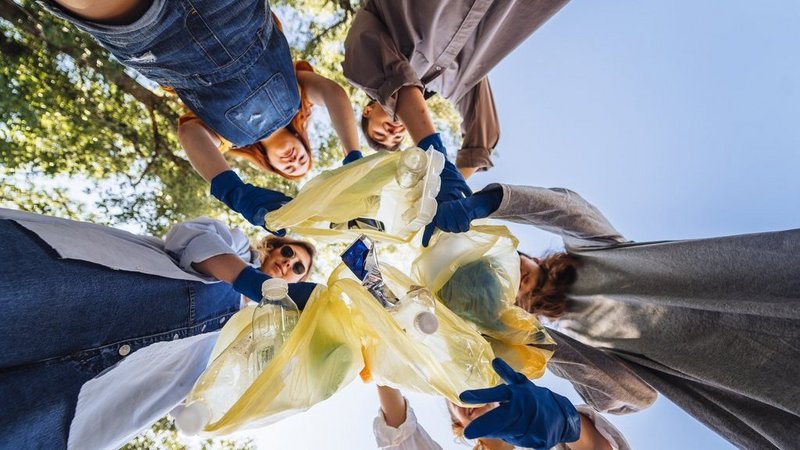
In this interview, glacier researcher Birgit Sattler (University of Innsbruck) and technology expert Munir Merdan (bee produced) talk about how they are using their Sparkling Science projects PLASTIC.ALPS and Recycling Heroes to combat plastic waste and e-waste and support environmental protection.
Read more
Science communication with and for children and teenagers
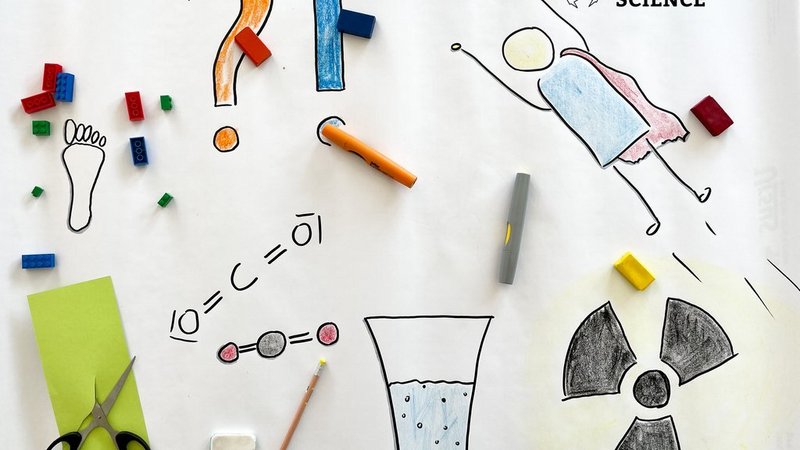
In the interview, project leader Philipp Spitzer (University of Graz) explains, among other things, what is planned in the citizen science project We talk about science, which highlights he is particularly looking forward to and what science communication means to him personally.